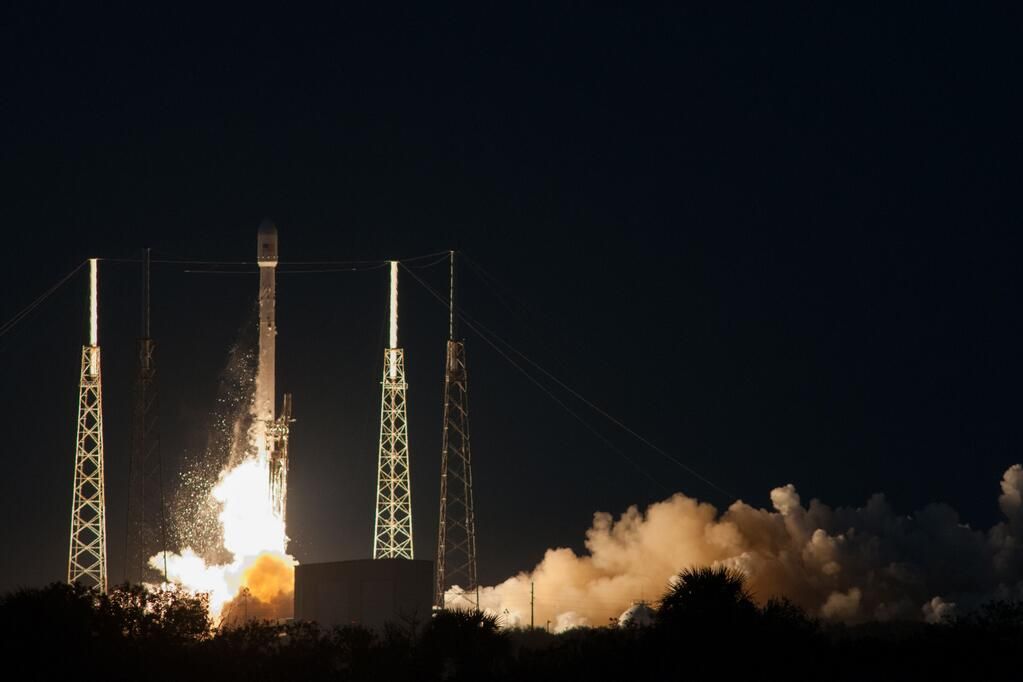This past Saturday, the Falcon 9 rocket from SpaceX carried out its record-shattering 15th mission which only further extends the record for the company for reusable rocket missions.
This launch for the Falon 9 carried a group of 54 Starlink internet satellites and took off from the NASA-owned Kennedy Space Center on Saturday evening in Florida.
Liftoff! pic.twitter.com/nOImtbIbpr
— SpaceX (@SpaceX) December 17, 2022
The booster from the rocket fell back down to earth roughly nine minutes after the initial take-off, landing safely on a designated SpaceX drone ship just off the coast of Florida in the Atlantic Ocean.
“Falcon 9’s first stage has landed on the Just Read the Instructions droneship, completing the 15th launch and landing of this booster!” highlighted SpaceX in a social media post.
Falcon 9’s first stage has landed on the Just Read the Instructions droneship, completing the 15th launch and landing of this booster! pic.twitter.com/0AXCXTSPRb
— SpaceX (@SpaceX) December 17, 2022
A group of close to four dozen Starlink satellites was placed in orbit roughly 15 minutes in the wake of the launch. Elon Musk, the leader of SpaceX claimed that the successful mission was the third of three perfect orbital launches over the course of 36 hours.
As of writing, Starlink has well over 3,500 satellites currently in space, with plans to put in place up to 30,000 in all. The launch was just a piece of a very busy period that saw a total of three launches from the company in just under three days.
“Congrats to SpaceX Team on 3 perfect orbital launches within 36 hours!!!” exclaimed Musk on social media.
Congrats to SpaceX Team on 3 perfect orbital launches within 36 hours!!!
— Elon Musk (@elonmusk) December 17, 2022
This past Friday, the Falcon 9 was able to launch for NASA the SWOT water-watching satellite out of the Vandenberg Space Force Base located in California. The Surface Water and Ocean Topography mission slated for low-Earth orbit is “an internationally developed mission to conduct the first global survey of Earth’s surface water,” as explained by the description of the mission given by SpaceX.
“It aims to provide a new understanding of the ocean’s role in climate change and improve the data humanity relies upon for fresh water management,” it stated.
This SWOT satellite will now be put through calibration and testing with the intent to start collecting sets of data in roughly six months as part of its mission to measure the bodies of water for the planet.
“Warming seas, extreme weather, more severe wildfires – these are only some of the consequences humanity is facing due to climate change,” explained Bill Nelson, the NASA Administrator. “The climate crisis requires an all-hands-on-deck approach, and SWOT is the realization of a long-standing international partnership that will ultimately better equip communities so that they can face these challenges.”
In addition to the other two missions, a Friday launch out of Cape Canaveral saw the sending of European telecom satellites into orbit.
Watch Falcon 9 launch the @SES_Satellites O3b mPOWER mission to orbit → https://t.co/bJFjLCzWdK https://t.co/SqeA1SSTsu
— SpaceX (@SpaceX) December 16, 2022

